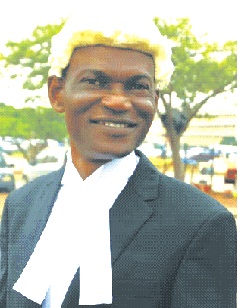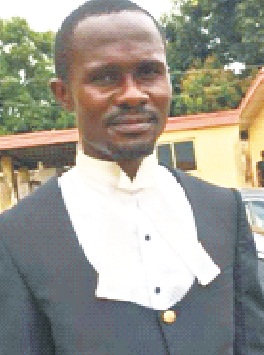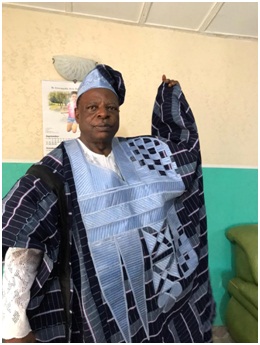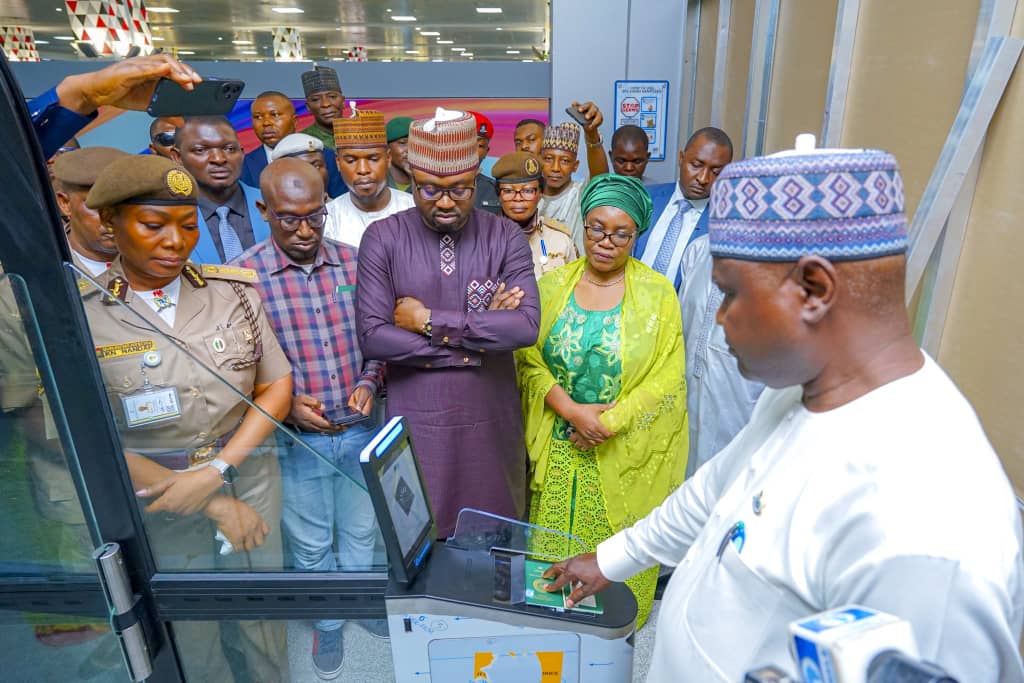Is it legally visible for United Nations to declare part of Nigeria a protectorate?
By Runsewe Solomon & Damilola Akinmolayan
|
Prof. Wole Soyinka, a Nobel prize winner, recently, made a declaration that the international community was duly obliged to wade into the security situation in the country, saying the Federal Government has failed to fulfill its obligation under the United Nations Charter to which Nigeria is a signatory.
THE HOPE Classics speaks with some legal practitioners on the matter.
Excerpts

In the recent times, well meaning Nigerians and non Nigerians have been calling on the United Nations to declare Nigeria or part of Nigeria a protectorate. This call becomes urgent because of the unrest and grave insecurity.
Among the voices is that of the Nobel Laureate, Prof. Wole Soyinka , who called recently on the United Nations to wade in and take hold of part of Nigeria as the government of Buhari has failed woefully to fulfill its primary responsibilities under the international and domestic laws.
Laying a historical premix, Lord Fredrick Lugard, the governor of both the Northern Nigeria Protectorate and the Colony and Protectorate of Southern Nigeria, signed a document on January 1, 1914 consolidating the two as the Colony and Protectorate of Nigeria and that Nigeria was admitted a member state of the United Nations on 7th of October, 1960, having gained independence on 1st of October, 1960 (same year).
The UN preamble is to save succeeding generations from the scourge of war, which twice in our lifetime has brought untold sorrow to mankind – Hiroshima of 1945, and toreaffirm faith in fundamental human rights, in the dignity and worth of the human person, etc.
The United Nations may simply be defined as an organization of independent states which have accepted the obligations contained in the United Nations charter signed at San Francisco on June 26, 1945.
It behooves on me to explain the meaning of the word “Protectorate”. Black’s law succinctly explained it to be in International law as the relationship between a weaker nation and a stronger one when the weaker nation has transferred the management of the more important international affairs to the stronger nation. A state ( Country) – under the protectorate is referred to as a protected state. The interference by a stronger nation results into the loss of its sovereignty on the part of the weaker state.
In the recent, majority of protectorates have been established by treaty
The purposes of UN are stated in Article 1 as follows:
The maintenance of international peace and security;
The development of friendly relations among nations based on the principles of equal rights and self determination of peoples;
The achievement of international cooperation in the solution of international problems of economic, social, cultural character and in the promotion and encouragement of respect for human rights and fundamental freedom for all without discrimination;
A centre for harmonizing action for attainment of the common goals.
Article 24 Security Council reveals that the Security Council is the organ saddled with the maintenance of international peace and security. Articles 41 & 42 gave us the modus operandi of achieving the peace talked about in Art. 24.The UN Committee on the Elimination of Racial Discrimination has stated that the right to self – determination involves the rights of people to pursue freely their economic, social and cultural development without outside interference and that governments are to represent the whole population without distinction.
Section 21 of the 1999 Constitution of the Federal Republic of Nigeria as amended states that the State shall:
Protect, preserve and promote the Nigerian culture which enhance human dignity and are consistent with the fundamental objectives as provided in this chapter.
However, it is possible for the protectorate of a state to take place but it has to be by the consent of the protected state and it must be done without their right as a sovereign state being violated, anything short of this is a mere violation of right of a sovereign state which will amount to an act of impunity., this can be supported by the UN charter on the Universal Declaration On Human Rights and international human rights law ( articles 1 & 3). They have the right to self – determination and in doing this , have the right to autonomy or self – government in matters relating to their internal and local affairs.
I daresay that, it is illegal for the United Nations ( UN ) to declare part of Nigeria a protectorate. If this must be done, it has to be with the express permission of Nigeria as a sovereign state.

Constitutionalism refers to the whole process of governance based on the Constitution of a given State.
It ensures obedience to the rule of law by people put in positions of authority other than rule arbitrarily.
The true concept of constitutionalism envisages the supremacy of law. This supremacy of the Constitution is the case of Nigeria.
To buttress this point, the Constitution of Federal Republic of Nigeria (CFRN) has as its introduction viz:
The Federal Republic of Nigeria shall not be governed, nor shall a person or group of persons take control of government of Nigeria or any part thereof, except in accordance with the provisions of this Constitution.
If any other law is inconsistent with the provisions of this constitution, the constitution shall prevail and that other law shall be the extent of the inconsistency by null and void.

To me since the Federal Republic of Nigeria was admitted as a member state of the United Nations on October 7th, 1960, having gained independence on October 1st the same year.
And United Nations System (UNS) in Nigeria, consisting of 19 residents and 4 non-resident entities has had a productive engagement with the Federal Republic of Nigeria since its independence. The UNS has been a catalytic supporter of, and trusted partner in, the development aspirations of Nigeria.
At the moment, Nigeria faces multi-faceted challenges which include the complex humanitarian situation in its North-eastern, Western region, other internal conflicts and a number of development deficits.
I think United Nations also has every right to help finding lasting solution to the crisis facing by some of the region in the country.

It is quite unfortunate and unlawful that eminent Nigerians such as Professor Soyinka as well as others always choosed to belittle the country by inviting world bodies and other Western countries to intervene in their country.
This is not different from what the past generations of black nations did, only for those invited to enslave us, plunder and steal our natural resources.
Nationals from other troubled spots around the world such as Myanmar ( Burma), South Sudan, Somalia, Mexico and Colombia (ravaged by drug wars) will not toe the same path such as Africans are quick to follow.
We must learn from history and not trade away our dignity inspire of challenges that we may have. Activism should stop where national pride is required.
The rule of law in Nigeria
By MIO Nwogu
|
The rule of law is a liberty centred constitutional concept which stipulates that everything must be done in accordance with the law. It encapsulates such ideals as government according to the law, equality before the law and the independence, and autonomy of the judiciary among others. The rule of law is fundamental and prerequisite in a democratic system of government. It is the pillar of constitutional democracy.
It serves as a blueprint for designing an ideal legal system. There is almost the absence of the rule of law in military rule. Military rule is marked with autocracy and rule by force. The people are denied civil liberties which conflict with the dictator’s will. The decree is the supreme law of the land in military dispensation. However, in democratic dispensation constitutionalism and rule of law is supposed to been umero uno. This article will examine the ideal place of rule of law in governance vis- à-vis the Nigerian experience both under democratic and military governance.
Introduction
The concept of the rule of law is one of the prominent and important constitutional concepts.
It is fundamental principle accepted as a standard not only for judging the performance of government, but also for determining which is beneficial or destructive to humanity. This concept is the bedrock of our system of justice. Being the bedrock of our system of justice, it is of great importance, so as to justify the legal order and legitimize the system of a given society.
The rule of law collectively symbolizes the most important features of democratic governance such as government of the people, by the people and for the people; separation of power and checks and balances; representative democracy and substantive limits of governmental actions against the individuals (the protection of human freedom and dignity); limited government; and the review by an independent judiciary as a central mechanism for constitutional enforcement.
Hence, the rule of law is a hydra-headed concept that encapsulates very many issues in law, the polity and society. To Ojo, it is “a nebulous concept whose meaning and content vary from place to place.”
Meaning of the Rule of Law
The rule of law being a constitutional concept remains the cornerstone of governance in any given polity. It means that everything must be done according to the law. This implies that both the government and the governed must always justify their actions in law. And that government should be conducted within the framework of recognized rules and principles which restrict discretionary power, which Coke colourfully spoke of as “golden and straight netwand of law as opposed to the uncertain and crooked cord of discretion.”3 Government business should be done to avoid dictatorial tendencies, because if discretionary powers are allowed, those in government would use such to the detriment of the less priviledged members of the society.
According to the Black’s Law Dictionary, the rule of law is the supremacy of regular law as opposed to arbitrary power. Every person is subject to the ordinary law within the jurisdiction.
In Dicey’s5 exposition; It is the absolute supremacy or predominance of regular law as opposed to the influence of arbitrary power and excludes the existence of arbitrariness, prerogative or even of rule of wide discretionary authority on the part of government … a man may be punished for a breach of law but he can be punished for nothing else.
This definition begs the question, for a look at it will bring out certain presumptions which are no longer fashionable because of the expansion of government functions and of course of frontiers of knowledge. First is the presumption that a man can only be punished for a breach of “the regular law” before the ordinary law courts. The regular law to him meant the common law of England and statutes. This presumption has been restrictive of the laws applicable now in modern States which include a bulk of delegated legislation from Ministers and Government Departments.
The second presumption is that a breach of the laws must be adjudicated by the ordinary law courts. This view has also been faulted for disregard for the role of arbitral tribunals, administrative tribunals and disciplinary bodies of professional associations. These bodies are recognized as necessary in the administration of justice provided they observe the rules of natural justice and their decisions subject to judicial review .










